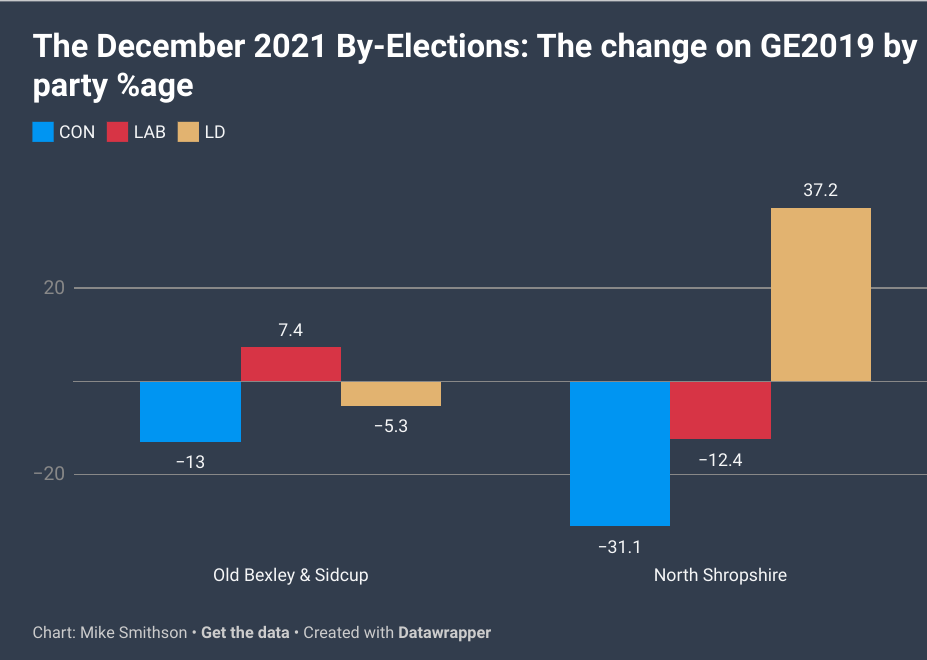What should really worry Tories: anti-CON tactical voting

The above chart has been created to show two very big trends that we can now map from the two by-elections that we have seen this December. The first is that Tory voters are much more ready to switch to the LDs when Davey’s party is in the ascendency and the second is that both LAB and LD supporters are ready to vote tactically when the perceived situation in their seats demands it.
Thus in Old Bexley the LD vote went down and the LAB went up while only two weeks later in N Shropshire it was the other way round. The big difference between the two elections was that in the latter the Tory vote crumbled when it became clear that it was the LDs that were surging and not Labour.
A big factor that Starmer understands is that Davey’s party is able to reach parts of the Tory vote that Labour finds difficult to reach. This is not something that backers of former leader Corbyn are ready to accept and they have been trying to use Thursday’s result to undermine the party leader. In doing so they help BJ.
This was from former YouGov head, Peter Kellner, in the Guardian:
Byelection campaigns develop their own momentum: tactical voting in general elections is never as great. But back in 1997, when Tony Blair and Paddy Ashdown led their respective parties, tactical shifts of just a few percentage points cost the Conservatives about 30 seats they would otherwise have held..Nothing like that happened in 2019. Lib Dems could not bear the thought of helping Jeremy Corbyn – indeed some Lib Dem candidates report losing supporters to the Conservatives, to be sure of keeping Corbyn out of Downing Street. Jo Swinson, the then Lib Dem leader, was not actively disliked by Labour supporters but neither did she have the positive appeal of Ashdown two decades earlier.Today, with Starmer and Ed Davey at the helms of their parties, tactical voting seems to be enjoying a revival. Suppose it has the same impact at the next election as in 1997. The Tories would have lost heavily then, even without tactical voting. Next time it could make the difference between the Conservatives having enough MPs to continue in office, or Johnson being replaced by Starmer, at the head of a minority Labour administration.
Kellner’s analysis is surely right.